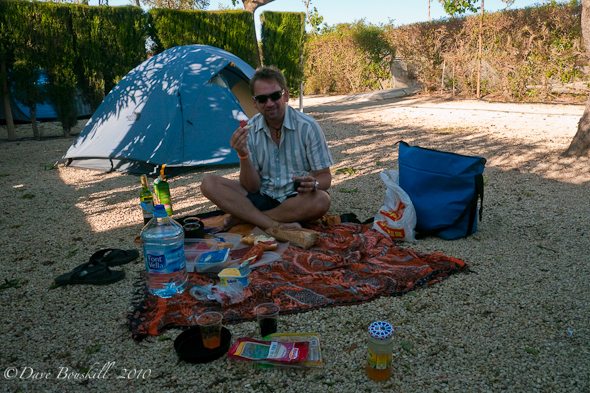Camping in Spain: Tips for a Luxurious Experience
- Introduction to Luxurious Camping in Spain
- Essential Camping Tips for Spain and France
- What to Pack for Tent Camping in Europe
- Conclusion and Additional Tips
We had no idea that camping in Spain could be so luxurious. After visiting numerous campsites in Spain, we definitely learned a few things that can help you make your trip to Spain’s campgrounds more comfortable and economical. We have camped quite a bit during our travels around the world, and Spain is definitely one of our favorite camping destinations.
Essential Camping Tips for Spain and France
Some campsites in Spain feature swimming pools, hot tubs, restaurants, and grocery stores. Camping in Europe can be just as comfortable as staying in a hotel if you are armed with the proper information and follow the tips and advice listed below.
Camping in Europe differs from camping at home in Canada. Campsites may be more rustic and not quite as luxurious in Canada; however, we provide campers with a few essential conveniences. For instance, every campground in Canada typically offers picnic tables, but this is not universally true while camping in France or Spain.
Through trial and error, we have developed a comprehensive list of what to bring to ensure a successful camping vacation in Europe.
What to Pack for Tent Camping in Europe
- Bring Chairs – Your campsite will not provide seating. If you don’t want to be stuck sitting in your tent all night or sitting cross-legged on the ground, bring some fold-out chairs.
- Bring a Table – This may come as a surprise; however, there is no place to eat at your campsite if you are packing a tent. Most people would caravan in Europe and have everything they need, which is not the case with tent camping. We didn’t bring a table and resorted to eating on the ground. Some campsites won’t even allow you to eat your picnic lunch at the restaurant or around the pool; eating at your campsite is mandatory.
- Get an Adapter – You may think that you have a European adapter already, but some campsites require a special adapter to access power. A normal 3-prong plug won’t work. A campers 220 Volt/6 Amp adapter is necessary, which we unfortunately did not have.
- Bring Ear Plugs – Despite thinking you will be alone in the campsite, camping in Europe can be lively. People often stay up late talking, and children tend to wake up early making noise.
- No Camp Fires Allowed – At all campsites we visited, no fires were permitted, including BBQs. Camp stoves are allowed; however, it is challenging to find fuel other than propane/butane at the campsites. With current airline regulations, taking a camp stove on board is difficult, and bringing a fuel canister is even more complicated. Consequently, it is often better to buy your camp stove upon arrival.
- Use AlanRogers.com – This site offers excellent advice on where to stay in both France and Spain. Also, check out SoulTravelers3, who have traveled through Europe for 4 years, frequently caravaning. They provide valuable information on camping in Europe.
- Tent – Of course, this is essential.
- Sleeping Bags
- Cooler – A collapsible cooler is lightweight and doesn’t take up much space.
- Wine Opener – As you are in France, wine should be a nightly must-have.
- Cutlery – Knives are essential for bread and cheese.
- Warm Hats – Temperatures can drop at night in a tent.
- Thick Socks – Similar reasoning as above.
- Plastic Glasses – Durable plastic is preferable for reusability.
- Collapsible Cutting Board – Ideal for the daily bread and cheese.
- Laundry Line – Useful for drying shower towels.
- Flip-Flops – Perfect for the shower.
- Tarp – If car camping, a tarp and rope is useful for rain protection.
- Thermarest – A thin air mattress is lightweight and offers substantial comfort and warmth.
- Silk Liner – Useful for warmer nights.
- Laundry Detergent – Campsites often provide laundry facilities.
- Dish Soap – Essential for cleaning cutlery and other items.
- Plastic Containers – Great for storing food.
- Camp Towels – Quick-drying and lightweight.
- Bathing Suits – Most campsites feature swimming pools.
- Headlamps – Essential for navigating your tent during nighttime.
What to Pack for Your Camping Trip
Conclusion and Additional Tips
We know that there are many expert campers who have explored Europe; what advice do you have? While the general camping advice may apply universally, specific nuances vary by country, and Europe presents unique differences. Nonetheless, we have genuinely enjoyed every moment of our experiences camping in Spain.





